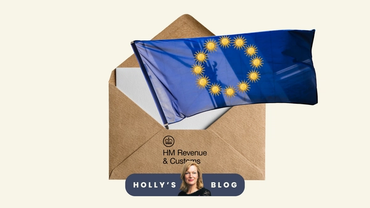Pensions - what's your priority?
By Holly Mackay, Founder & CEO
16 May, 2025

This week the Chancellor and 17 pension companies got together to sign what is called the Mansion House Accord.
It’s a voluntary pact, by which these companies promise to put 10% of pension money they manage into so-called ‘private markets’ by 2030. This is investing into businesses or projects which are not listed on a stock exchange, and are typically things like infrastructure or property. There’s another thing too – 5% of this is to be invested into UK private markets. Hmmm.
Let me frame this another way which might feel more relevant to readers. In 5 years’ time, the Government and pension companies have agreed that 10p of every £1 in your pension should be invested in private markets, with 5p of this going to the UK.
I have a fundamental problem with the Government trying to influence how my retirement savings are managed. Why should our pension savings be used to deliver Rachel Reeves’ growth? Frankly, I’d like my pension money to be invested in whatever will get me the biggest stash when I retire because going to Ibiza, embarrassing my children, finding an inappropriately handsome young tennis coach and drinking fizz for breakfast (only at the weekends, I have my standards) will be very expensive.
Private markets have historically been very expensive, illiquid (you can’t just sell your stake in a new rail project overnight), extremely hard to track and monitor – and it’s a very small market in the UK today. Many readers will be scarred by the Woodford hoopla back in 2019, where one of the UK’s most popular funds was effectively suspended (gated) and people couldn’t get their money out. At the time of suspension, one-fifth of the money was in illiquid stuff, mostly in unlisted healthcare or biotech companies, which was the source of all the problems.
These types of investments can be all hunky-dory when everyone feels good. But when everyone runs for the doors shouting, “Yikes, Give Me My Money NOW”, you can’t sell quickly enough to do this. And it goes wrong. Quickly.
To be fair, workplace pensions are different creatures and most people trundle along, largely ignoring them, often unaware that the pension is even invested, and there would not be the type of mass exodus demands which we see in the retail world of the more engaged private investor.
There are other counter arguments to my opinion. Some argue that whopping big pension firms will be able to negotiate much better prices for these investment opportunities. Some say that there are brilliant companies out there which aren’t available on public markets. (This is why lots of readers like Scottish Mortgage or Edinburgh Worldwide Investment Trust, for example, because you can own a bit of Elon Musk’s Space X company through these, which isn’t available on general stock markets.) And some point to the potentially larger returns from private markets.
You can also make the case that all this investment in the UK could create jobs, stimulate growth and boost the economy, which long-term will improve wealth for many. I’m just not sure that someone due to retire in 5 years’ time gives a monkey’s about that, and it’s a very hard argument for a trustee to prioritise when that concept of ‘fiduciary duty’ means their single job is to enable me to afford as much tennis coaching as is humanly possible. Not to fix the UK’s pallid productivity or weak comparative investment track record.
Here's my beef. Money talks. If these opportunities were indeed so great, the money would be flowing there now. Investments get found when they perform well.
If the UK looks like a good bet, money will flow irrespective of any Accord. If the UK performs badly, trustees will blame the Government for a lack of pipeline, the Government will blame the pensions companies and amidst all the finger pointing, you, me and millions of innocent pension savers will be watching from the sidelines, wondering if we couldn’t have made more, more cheaply, if we’d just stayed invested in simpler stuff. Or, dare I say it, in the US.
I’m an entrepreneur. I love investing in new things. I want to back growth. But lead the argument with convincing evidence about superior performance and low costs and I’d be much more engaged. Will we solve this problem by shoving Ma and Pa’s money this way OR by ensuring that the environment for UK companies allows them to excel and perform?
I don’t want politicians to tell me where I should invest my money. Full stop.
Have a brilliant weekend everyone. The sun is behaving itself today and I'm going to dig out that dusty old bottle of Pimm's lurking at the back of the cupboard. Good luck to parents and younger readers who are in exam period. This too shall pass!!!
Holly
Post a comment:
This is an open discussion and does not represent the views of Boring Money. We want our communities to be welcoming and helpful. Spam, personal attacks and offensive language will not be tolerated. Posts may be deleted and repeat offenders blocked at our discretion.







When Gordon Brown removed dividend tax credits it led to UK Pension Scheme no longer investing in UK shares. Instead of strong arming pension funds to invest in the uk, why doesn't the chancellor just reverse that despicable action. Governments have already stolen about £250 billion because of this, when is enough, enough?
James
16 May 2025